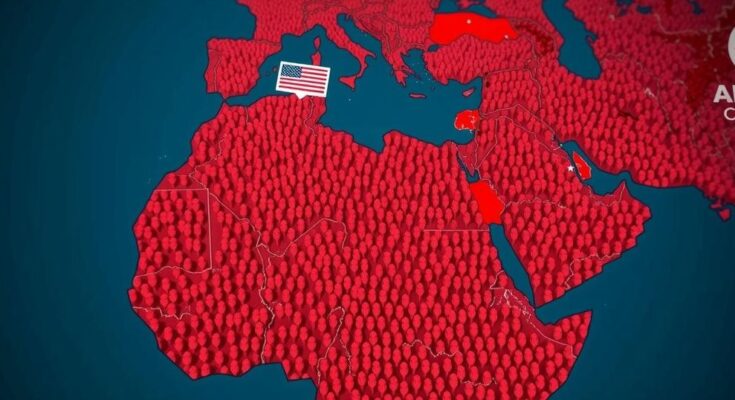Sudan has decided to keep the Adre border crossing with Chad open for an additional three months to facilitate humanitarian aid to the struggling Darfur region. This decision follows discussions with UN agencies and will enable the delivery of extensive aid supplies, addressing urgent needs amid a growing famine crisis driven by ongoing conflict. The UN welcomes this action but emphasizes the need for broader access to meet the escalating demands for assistance.
The Sudanese government, which is currently under military control, has announced that the vital border crossing at Adre, connecting Sudan to Chad, will remain open for the next three months. This decision aims to facilitate the flow of essential humanitarian aid into the western Darfur region, which has been heavily affected by ongoing violence and a growing famine crisis. Following extensive discussions with various United Nations agencies and other aid organizations, authorities emphasized the necessity of this crossing for addressing the dire humanitarian needs of the population. Since its reopening in August, there has been a significant influx of humanitarian supplies, including over 11,000 metric tons of food intended for nearly 1.4 million individuals. The Adre crossing had previously been closed at the beginning of the year, but recognizing the escalating humanitarian crisis in Darfur, the Sovereign Council allowed its reopening. Stéphane Dujarric, a UN spokesperson, expressed relief over this continuation, highlighting that more than 337 aid trucks have passed through the crossing, alleviating some of the needs of displaced individuals, particularly those in the Zamzam displacement camp. The conflict in Sudan, ignited in mid-April 2023, has led to catastrophic levels of violence and displacement, resulting in over 24,000 deaths and displacing more than 14 million people. Reports of famine conditions in areas like the Zamzam camp highlight the critical need for consistent and sustained humanitarian efforts. Dujarric mentioned that while the Adre crossing is vital, it does not alone suffice to meet the increasing demands for humanitarian assistance, stressing the importance of opening all possible routes. Aid organizations have positively reacted to the decision to maintain the crossing’s open status, calling for an end to all hindrances obstructing humanitarian efforts. Mathilde Vu, advocacy manager at the Norwegian Refugee Council, noted that this decision could significantly support the 5.3 million individuals, particularly children, on the brink of starvation, urging for increased support from the international community to enhance emergency responses. This news comes amidst ongoing efforts by the UN to facilitate humanitarian operations, recently discussed by U.N. Secretary-General António Guterres with General Abdel Fattah Burhan, the current military leader in Sudan.
The context of the article lies in the ongoing humanitarian crisis resulting from the violent conflict in Sudan that began in mid-April 2023. Tensions between military factions have exacerbated the situation, turning Darfur into a hotspot for violence and famine. As the international community responds to the stark needs of millions affected by displacement and starvation, the role of borders like the Adre crossing becomes crucial for delivering humanitarian assistance. The UN, along with various aid organizations, continues to work toward alleviating the suffering of those affected.
In conclusion, the Sudanese government’s decision to keep the Adre crossing open for three more months marks a critical step in addressing the humanitarian crisis in Darfur. The collaboration among international agencies and local organizations is essential for ensuring continued aid delivery, which is vital to support the millions facing famine and displacement. Ongoing efforts must focus on maintaining accessible routes for humanitarian assistance to alleviate the dire conditions experienced by vulnerable populations in the region.
Original Source: www.independent.co.uk




